The price threshold is not coming from the customer, but from the hotelier
Hotel guests decide spontaneously and at shorter notice where they want to travel. Regular guests are becoming rarer. Price comparisons are done online. What should hotels do to determine the optimal feel-good price? Is the lowest price really the best?
Kai-Markus Müller, a renowned figure in the field of pricing, holds a Ph.D. in neuroscience and has made numerous appearances and reports on popular media platforms such as BBC, Forbes, Businessweek, DER SPIEGEL, and more. Currently, he serves as a Professor of Consumer Behavior at HFU Business School in Schwenningen and also holds the position of Director of Pricing Research at Neurensics, a pioneering company in the field of neuromarketing based in Amsterdam. In addition to his impressive credentials, he is the founder of a successful start-up where he developed NeuroPricingTM, a series of innovative neuroscience methods for effectively determining and modeling optimal prices. This groundbreaking technology is now proudly owned by Neurensics.
GRANT: Let's begin with a seemingly simple question: What exactly is a price? How would you define the concept of "price"?
Kai-Markus Müller: A price is a subjective connection between a numerical value and a product or service. But why is it subjective? Because our common belief that "price is determined by cost" lacks logical reasoning. Consider this: how can we assign a price to sunk costs? In the hotel industry, for example, these costs could be associated with amenities like a swimming pool or a marketing campaign. Similarly, in the pharmaceutical industry, the cost of developing a single successful product has to compensate for approximately 10,000 failed research and development attempts.
GRANT: Many providers believe buyers make purchasing decisions based on their needs, rationally assessing the available offers and comparing it to others. Do you agree with this assessment?
KMM: Absolutely not. Because people don’t truly know their needs. For a hotel, it’s essential to present offers in a way that guides human decisions. People like to believe they’re making free decisions, but the human brain does not like having too many choices. Instead, an offer structure should be constructed to subconsciously make a specific decision easier for potential guests.
GRANT: In the hotel industry, the same hotels “compete” on different distribution channels with the intention of getting more direct bookings. How effective are decoy offers in directing purchase decisions?
KMM: It depends on how the decoy is designed. Many hotels cre- ate decoy offers based solely on a low price. This is strategi- cally and psychologically unsuitable. It’s more psychological- ly appropriate to guide the guest’s decision with well-placed price anchors. For example, a very expensive junior suite could make standard double rooms appear cheaper. This is more profitable than simply selling the standard rooms at a discount.
"The price threshold ... is it possibly not with the customer at all, but with the hotelier?"
GRANT: In your opinion, do the real costs of an offer (from the provider’s side) influence the buyer’s perception of value?
KMM: If these were known, then it might be the case. Howev- er, costs are not understandable to outsiders. Anyone can quickly test this for themselves: How do the costs break down for one of your favorite and frequently used paid apps on your smartphone? How are the costs split for the jeans you’re currently wearing? If you have no experience in these industries, you can’t answer this. Similarly, a hotel guest can- not adequately assess the real costs.

Kai-Markuzs Müller, Professor of Consumer Behavior an der HFU Business School am Campus Schwenningen: kai-markus-mueller.com
GRANT: At the Hotel Revenue Forum in January 2023 in Milan, you used the product “water” as an example, showing that buyers are willing to pay a price 15,000 times higher if the packaging is right (illustrated in the “Brumisateur” image). How scientifically do you determine the price buyers are willing to pay?
KMM: Using NeuroPricingTM Online, we measure the comfort price. We present potential customers or guests with certain offers on our online platform, such as a specific double room or an e-bike. We then show different prices, which study participants rate as “expensive” or “cheap” with a keystroke. However, we don’t measure the answer but the response time! If participants hesitate and take a bit longer to answer, we are close to the comfort price, regardless of whether the answer is “expensive” or “cheap”. We then use an AI- supported algorithm, which among other things is based on a treasure trove of 2,500 EEG price brain scans, to determine demand and sales forecasts.
"Make sure to have some regional specialties on hand!"
GRANT: What “price barriers” exist in buyers’ minds?
KMM: Often fewer than we think! As already mentioned, buyers know very little about the cost structure. In a striking study, we were able to test the comfort price of insurance buyers and sellers. It turned out that - for the particular insurance tested - sellers had a lower value perception than buyers! Think about it: Is the price threshold perhaps not coming from the customer, but from you as a hotelier?
GRANT: What does this mean for the hotel industry? Hotel guests decide more and more spontaneously and at shorter notice where they want to travel. Regular guests are becoming rarer. Price comparisons are done online. What should hotels do to determine the optimal feel-good price? Is the lowest price really the best?
KMM: Make yourself incomparable. Many hoteliers believe that the competition offers something easily comparable. But this is not the case. Tourists, especially from a distance, are not able to adequately compare offers. It is therefore advisable to determine the value perception for offers in advance, e.g., using NeuroPricingTM Online. Who knows, maybe the com- petition perceives your house as a price leader and adjusts their prices accordingly.
"Make yourself incomparable!"
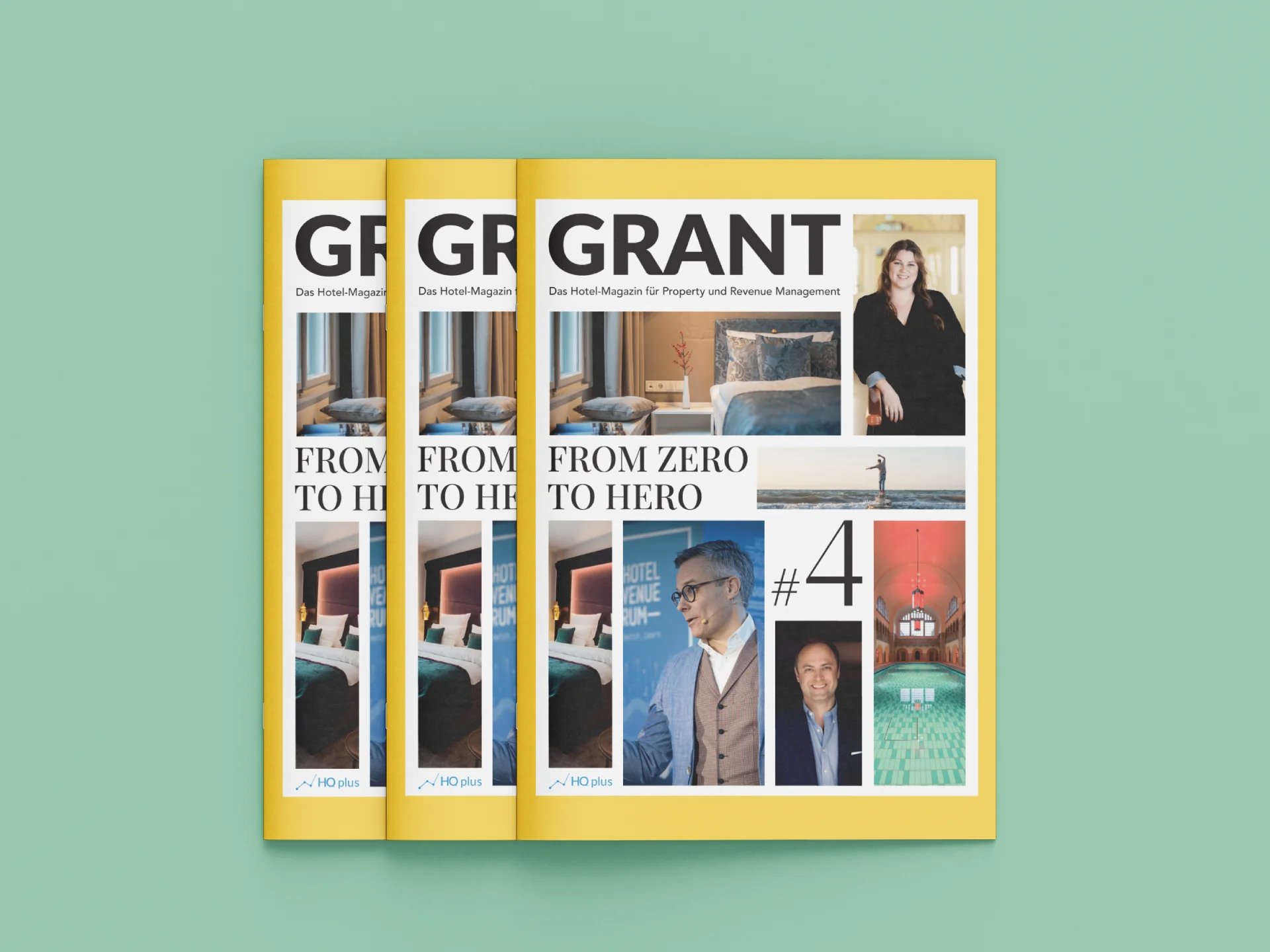
GRANT#4 – From Zero to Hero
Incomparable - that's also how you can attribute GRANT#4. Especially when compared to previous editions ;)
Download all issues or order a high-quality print edition to your own front desk →
KMM: These effects only work for unknown products. Offer regional specialties: local wine, local meat products, traditional dish- es! These cannot be classified. Overcharging for a glass of Coca-Cola, on the other hand, is easily detectable and an- noys guests. What also frustrates people is when parts of the offer don’t work, e.g., devices in the gym break down or the sauna isn’t running. This quickly leads to bad reviews.
GRANT: Speaking of reviews: You can scientifically demonstrate that a customer’s willingness to pay is linked to their personality. What does the “willing-to-pay customer” look like?
KMM: Indeed, this can be determined with a personality question- naire that precedes the pricing questions. Different hotels appeal to different personality types. The key is to identify which personalities have a high willingness to pay and which ones have a lower willingness. In a study for a successful ho- tel, we found that those guests who were willing to pay a lot were, surprisingly, the ones who were generally anxious, con- servative, and introverted. This insight was completely new to the hotel’s management.
"People don’t really know their needs!"
GRANT: What can hotels do to reach these customers?
KMM: That particular hotel had been using counterproductive mar- keting that emphasized novelty, excitement, and adventure. The ones willing to pay a lot weren’t targeted with this mar- keting strategy. With just a few linguistic and visual tweaks, the particularly interesting target group could be better addressed. Since then, the hotel has been riding a wave of profitable success that is unparalleled.
GRANT: If a good friend invites you for a glass of wine, assuring you it’s an excellent one, do you ask for the price or rely on your taste buds?
KMM: That’s a great question! Out of sheer politeness, I certainly wouldn’t ask. However, knowing the price would definitely influence me. Even though I deal with these topics daily, I’m not immune to the effects of price psychology - it has be- come a running joke for my wife, a thrifty Swabian, whenever I shop.
GRANT: Thank you for the conversation and your fascinating insights!
For 20 years, Kai-Markus Müller has professionally oper- ated at the intersection of psychology, neuroscience, and pricing, and has published various works. His first successful title “NeuroPricing – How Customers Think about Prices” was released in 2012 by Haufe Publishing.
In it, Müller describes the myriad of oppor- tunities that psychology and neuroscience offer modern pricing management. Ten years later, he co-authored “The Invisible Game – The Secrets and the Science of Winning Minds and Winning Deals” with top saleswoman Gabriele Rehbock, published by the international WILEY publisher. The award-winning work translates consumer psychology into the vast world of professional B2B sales.
How are prices perceived and evaluated in the buyer's brain? Which prices are accepted? How can higher prices be enforced? The first title on the subject of NeuroPricing provides surprising answers.
To achieve higher profits, the author uses the latest findings of brain research. He explains innovative pricing, optimal price presentation as well as price perception by the customer and builds a bridge between modern neuroscience and marketing. In this way, it is possible to develop a price that fits the product, that fits the market, that promises the highest profit and - most importantly - a price that customers are happy to pay.
Haufe.de →
Cutting-edge science can make all the difference for salespeople in a time when they are facing a business world in transformation. In The Invisible Game: The Secrets and the Science of Winning Minds and Winning Deals, neuroscientist Kai-Markus Mueller and sales professional Gabriele Rehbock deliver a hands-on guide to the hidden dynamics that influence the outcomes of most business deals. In plain English, the book unpacks recently discovered insights from psychology, behavioural economics, and neuroscience and explains how to apply them to your advantage in real-life business situations. The authors show you how to influence buying decisions and how to successfully respond to challenging business situations in order to put you in control of the levers that drive sales success.
Wiley →
Share this
You May Also Like
These Related Stories
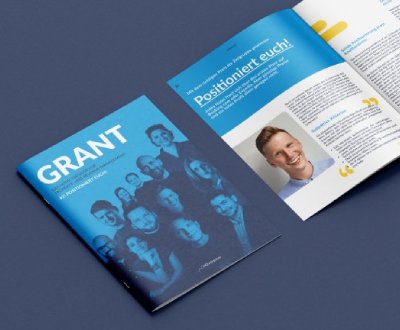
Attract the right target group with the right price? Get in Position!
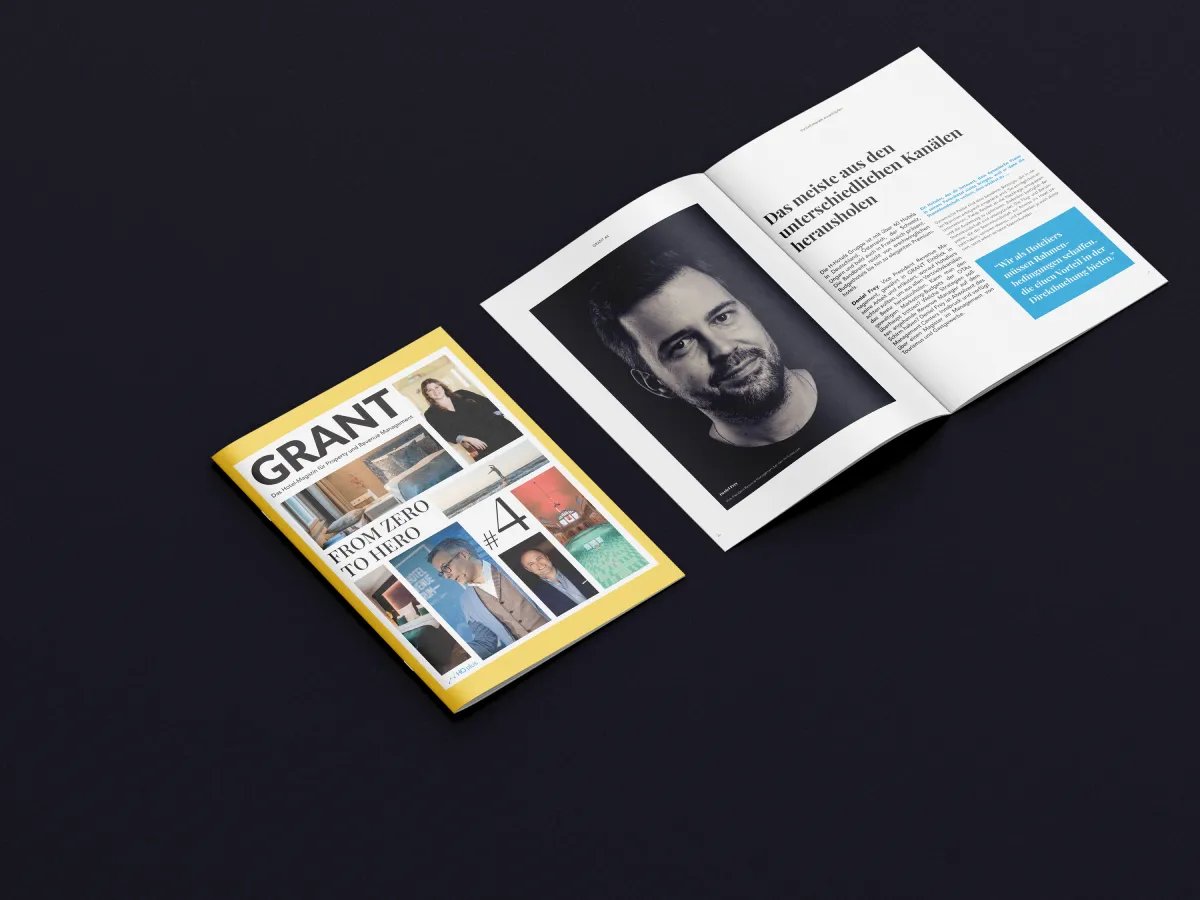
Making The Most of it – Maximizing Revenue From Each of the Channels Interview w/ Deniel Frey, H-Hotels
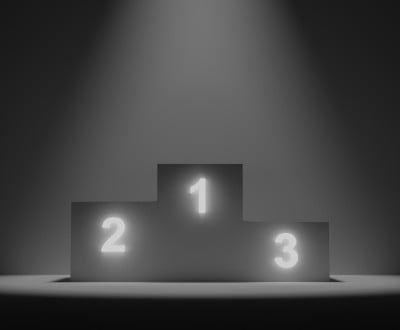



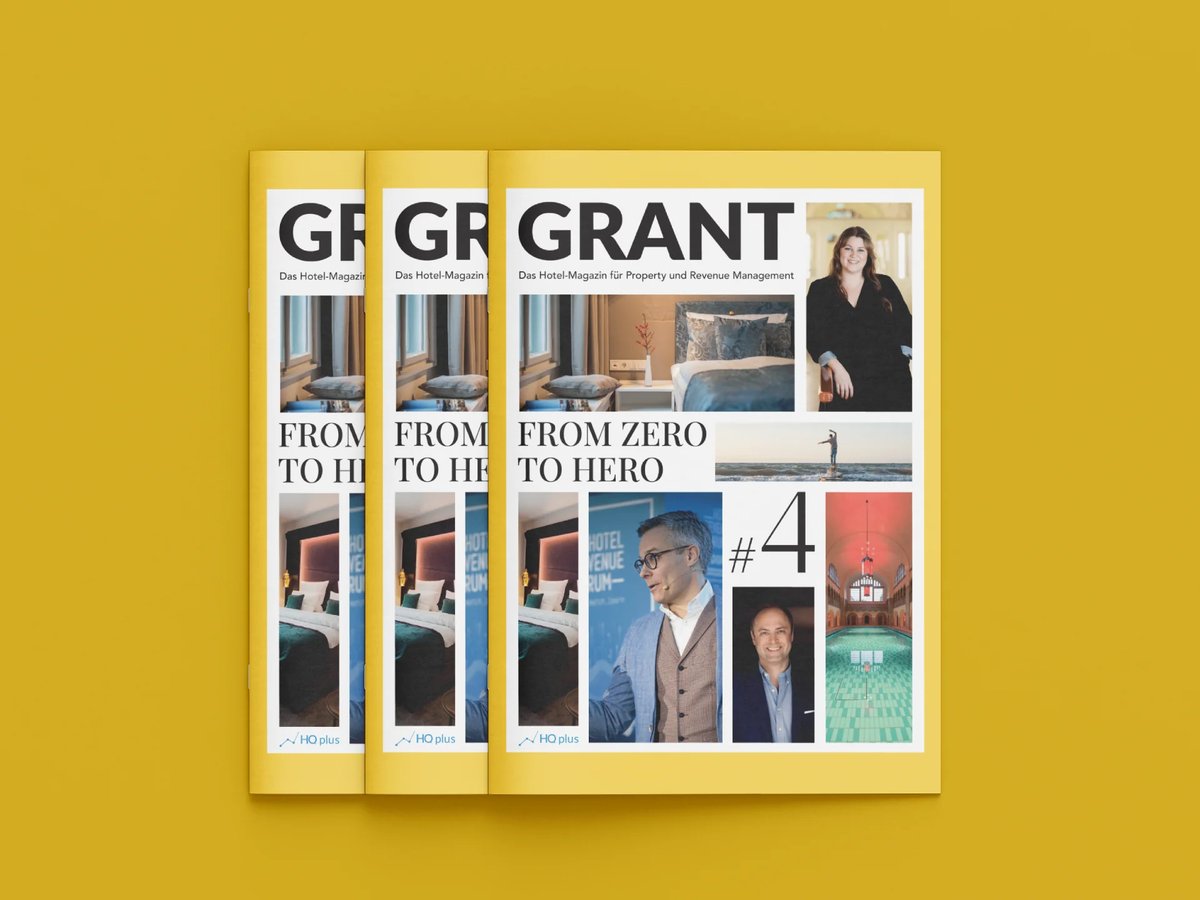
No Comments Yet
Let us know what you think